We were heartbroken last March when I discovered that our first colony of honey bees had abandoned their hive. It had been our first experience raising bees and we had been elated at the plentiful harvest we experienced at the end of a first season. Our industrious bees had filled two supers with harvestable honey after storing away two main boxes which would be an ample amount to sustain them through the coming winter. It’s hard to explain the fealings of depression we felt, (unless you have had the chance to raise bees yourself) but we had actually built a kind of relationship with them. Even before winter began I felt a type of parental concern worrying about their welfare as days become shorter and colder. I knew that they had plenty of stored honey to get them through the cold months ahead, but felt concern for the bitter cold subzero temperatures they would be facing. I looked on the web in hope of discovering how to winterize the hive and even asked for advice from folks who had far more experience than me, yet I still felt uncertain.
In an effort to protect them from the cold north winds I built a protective wall of hay around three sides of the hive leaving the sunny south facing side open. I also fashioned a sheet of roofing steel over the top to keep the driving rains from saturating them and the deep snows from burying them. In my mind I couldn’t understand how zero temperatures wouldn’t freeze the little guys into a solid block along with their stored honey supply when they were merely protected by a thin walled wooden box. After tucking them in the best I knew how I left the hive alone until March when I decided to put my ear to the cover lid in hope of hearing the buzzing sounds of life. I didn’t – the hive seemed empty.
I had heard reports from our bee keeping friend Mike Lutz and a neighbor down the road who both had lost their bees to what they considered to be hive collapse syndrome or disorder and so I decided to have a look. Carefully prying up the lid I looked in only to discover they too had disappeared. I felt a little heartbroken and really discouraged but after discussing it with Nancy decided not to give up but to try again the following spring.
Every year there is a beekeeping clinic offered in Fruitland, Idaho on the first of May for folks like us who are complete rookies when it comes to bees. I had attended the clinic the year before and purchased our first colony. This year I asked Nancy to go along with me hopeful that between the two of us we could ask more questions and retain more information.
The week before the clinic was scheduled I decided to empty the old hives and prepare them for the new colonies we would be bringing home. We decided to try two hives side by side after hearing that bee colonies do best in partnership. Opening the hive and pulling the old frames I discovered the abandoned combs were loaded with several gallons of honey. I couldn’t understand why a seemingly healthy bunch of bees would leave such a gold mine in the middle of winter. As I removed the last frames from the bottom box I discovered a dead mouse and a nest right in the middle. I wondered then if the mouse was the reason for the bee’s evacuation or if he had moved in after the bees had already left. I had no idea.
At the clinic I shared my finding with an experienced bee keeper and he told me it was common for mice to run off bees in winter when the bees are too weak to fight for their hive. He said that by pilling hay around the hive I had actually provided a good habitat for the mice and had even encouraged them to take up residence around their hive. He also told me that I could fashion a mouse guard made out of a piece of angle iron with holes drilled in it and fasten it in front of the hive entrance. The holes are large enough for bees to enter and exit but would keep the mice out.
Learning is a lifelong process I’ve discovered and many if not most lessons learned seem to come by way of failures and mistakes. I was tempted to give up on our beekeeping venture after my first failed attempt, but with Nancy’s encouragement decided to try again. We now have two new hives full of buzzing bees in our vegetable garden where we are able to watch them daily. They are already getting established and making themselves at home enjoying the first blossoms of spring.

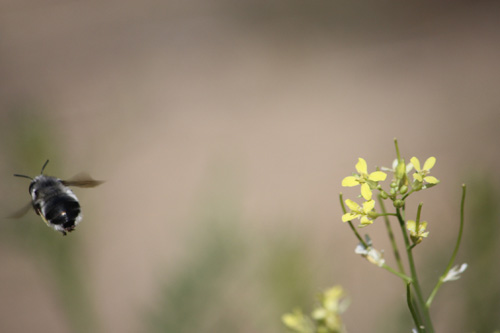
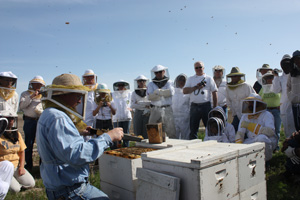
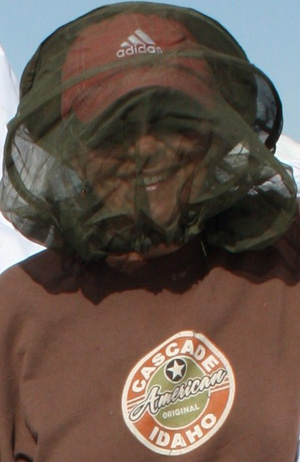
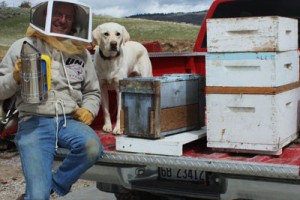
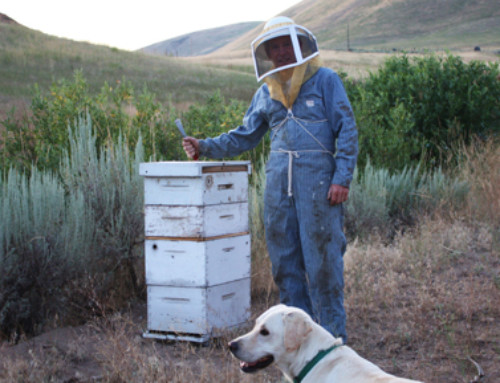
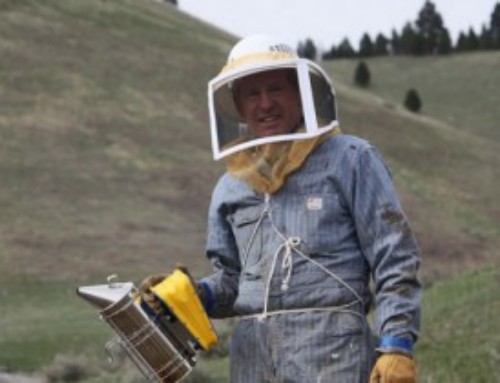
Leave A Comment
You must be logged in to post a comment.